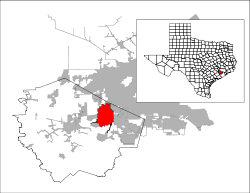
The Different Types of Energy Providers and How to Choose the Right One
The energy industry offers various types of providers and it can be difficult to choose which one to go with, especially if you’re new to the field. Here’s an overview of the different energy providers’ Sugar Land Energy Rates and how they work so you can make an informed decision.
Electric utilities
Looking for a new energy provider? We’re here to help! There are so many companies out there that offer different types of energy, but it can be hard to figure out which one is the best fit for you. Luckily, we’re here with a handy guide that breaks down the different types of providers and what they offer:
-Utilities: Utilities provide electricity on behalf of their customers. They are regulated by federal, state, or local authorities.
Independent power producers
An Independent Power Producer (IPP) is a company that generates electricity for customers. The most common type of IPP is a renewable energy company like solar or wind. These companies generate their power through renewable resources rather than traditional fossil fuels like coal or natural gas. IPPs are growing in popularity as they are more environmentally friendly, offer reliable prices, and can help increase electric grid stability.
Community choice aggregators

– Aggregator + utility: The utility company owns the entire electricity distribution grid, but they contract with an aggregator who manages all customer service operations.
– Utility + aggregator: The electric company owns and operates a traditional grid, but selects an external partner who will be their customer service agent.
Renewable energy certificates
When you purchase an energy certificate, you are supporting renewable energy by paying someone else for their use of clean power. Renewable energy certificates will be a more familiar term as they are becoming more popular, which means you’ll be able to find a provider with renewable energy certificates near you.
Green Power
If you’re looking for a way to cut down on your carbon footprint, green power might be the answer. Here’s what you need to know about green energy providers: they use renewable sources such as wind, solar, geothermal, and water power; they usually charge more than traditional providers, and their rates change with the seasons.
Net metering
To sign up for net metering, all you need to do is contact your local utility company and ask about how to set it up. Once this is done, a meter will be installed at your home that will measure both electricity coming in from the grid as well as any energy going back into the grid. The meter can help to accurately measure what type of provider you are using so that you know if you are paying too much or not enough.
Virtual net metering
This type of program can be beneficial in a variety of ways, but you must know what you’re getting into before you sign up. You’ll need to find out if your utility offers virtual net metering and how much they charge for it. In addition, some programs require you to pay an initial fee as well as monthly maintenance fees. If these are not things you’re willing to do or able to do right now, then this is not the right choice for you.
On-site generation
There are three main types of energy providers: on-site generation, off-site generation, and transmission company. On-site generation is when the company operates its generating station, like a coal plant or hydroelectric facility. Off-site generation is when an energy company buys electricity from power plants that it does not operate. Transmission companies deliver electricity from power plants to customers over high-voltage lines. The type of provider you choose depends on your needs and wants for your home’s energy supply.
